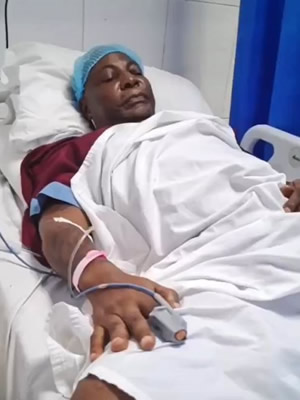When it comes to men’s health, silence has become deadly. Too many Nigerian men only step into a hospital when it is almost too late—when sickness has grown stronger than their strength. Among the most overlooked issues are prostate health and hormonal balance, two areas that quietly determine a man’s quality of life, yet are rarely discussed.
The truth is simple: what you don’t check, you can’t protect.
Why Prostate Screening Matters
The prostate may be small, but its problems create big consequences. Enlargements, infections, and cancers of the prostate are now among the most common health challenges facing men over 40.
Sadly, many men dismiss early warning signs—frequent urination, weak urine flow, or pelvic discomfort—as “normal aging.” By the time they seek help, the damage is often advanced.
Prostate screening is not about fear—it’s about taking charge before trouble takes charge of you. A simple yearly test can save a man’s life.
The Overlooked Hormonal Side
Hormones aren’t just a women’s issue. For men, hormones like testosterone play a key role in energy, strength, mood, fertility, and sexual performance.
When these hormones fall out of balance, men may experience fatigue, low libido, weight gain, erectile problems, or even depression. Yet because society tells men to “man up,” many suffer in silence instead of seeking help.
Normalizing hormonal checks can restore vitality, improve mental health, and extend quality of life.
Breaking the Stigma
In our culture, men are taught to fear weakness. Hospitals are seen as places to avoid until the body collapses. Screenings are viewed as unnecessary—or even shameful.
But this mindset is destroying fathers, brothers, husbands, and sons.
Health checks should be seen the same way we maintain our cars: regular, preventive, and necessary for smooth running. If you can invest in cars, phones, and clothes, you can invest in your body—because without health, nothing else matters.
The Way Forward
- Normalize annual check-ups: Prostate and hormonal screenings should be as routine as birthdays.
- Talk openly: Families, communities, and faith groups must break the silence around men’s health.
- Lead by example: Fathers, leaders, and influencers should share their own screening experiences without shame.
- Partner with support systems: Organizations like the Charly Boy Foundation are building platforms where men can learn, get screened, and take action.
Brothers, don’t wait for pain before you pay attention. Early checks mean early solutions.
FAQs
1. At what age should men start prostate screening?
From age 40, especially if there’s a family history of prostate issues.
2. What kind of hormonal tests should men do?
Basic checks include testosterone levels, thyroid function, and blood sugar balance—all vital for energy, fertility, and sexual health.
3. Is screening painful or complicated?
Not at all. Most screenings are simple blood tests, scans, or physical exams that take less than an hour.
4. Can lifestyle changes replace screening?
No. Healthy living helps, but it doesn’t replace medical checks. Screenings detect hidden issues that diet or exercise alone can’t fix.
5. How can I access help?
The Charly Boy Foundation is committed to men’s health advocacy. Reach out for guidance, referrals, and awareness programs tailored to Nigerian men.
Final Word
Stop treating health as an afterthought. Check it before it wrecks you. Screening isn’t weakness—it’s wisdom. And it’s time every Nigerian man embraced it.




